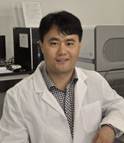Research Interest
1. Algae-bacteria-virus interactions in ocean;
2. Biologically-driven marine carbon sequestration;
3. Marine microbial ecology and resource development;
4. Blue carbon of the macroalgae farming.
Research Fields
1. Marine microbial ecology;
2. Marine virus;
3. Oceanic carbon sequestration;
4. Coastal ecohealth
Representative Research
Carbon Sequestration in Coastal Ocean and Its Environmental Regulation
The group established a theoretical model of the carbon sequestration mechanism and process of seaweed farming, and conducted a quantitative evaluation of its carbon sequestration potential, which provides a theoretical basis for the development of seaweed farming to achieve carbon neutrality; meanwhile, we developed an improved carbon-based ocean productivity model to accurately assess oceanic carbon fixation driven by picophytoplankton; in addition, we found that terrestrial inputs (such as herbicides) have reached a threat level, disturbing marine phyto- and bacterioplankton communities, and weakening coastal carbon sequestration; moreover, regarding the outbreak of green tides in Yellow Sea for 13 years, researchers explained the outbreak mechanism and its potential environmental effects (including the impacts on coastal carbon pools), and proposed several management strategies to control the green tide.
Contact
zhangyy@qibebt.ac.cn





